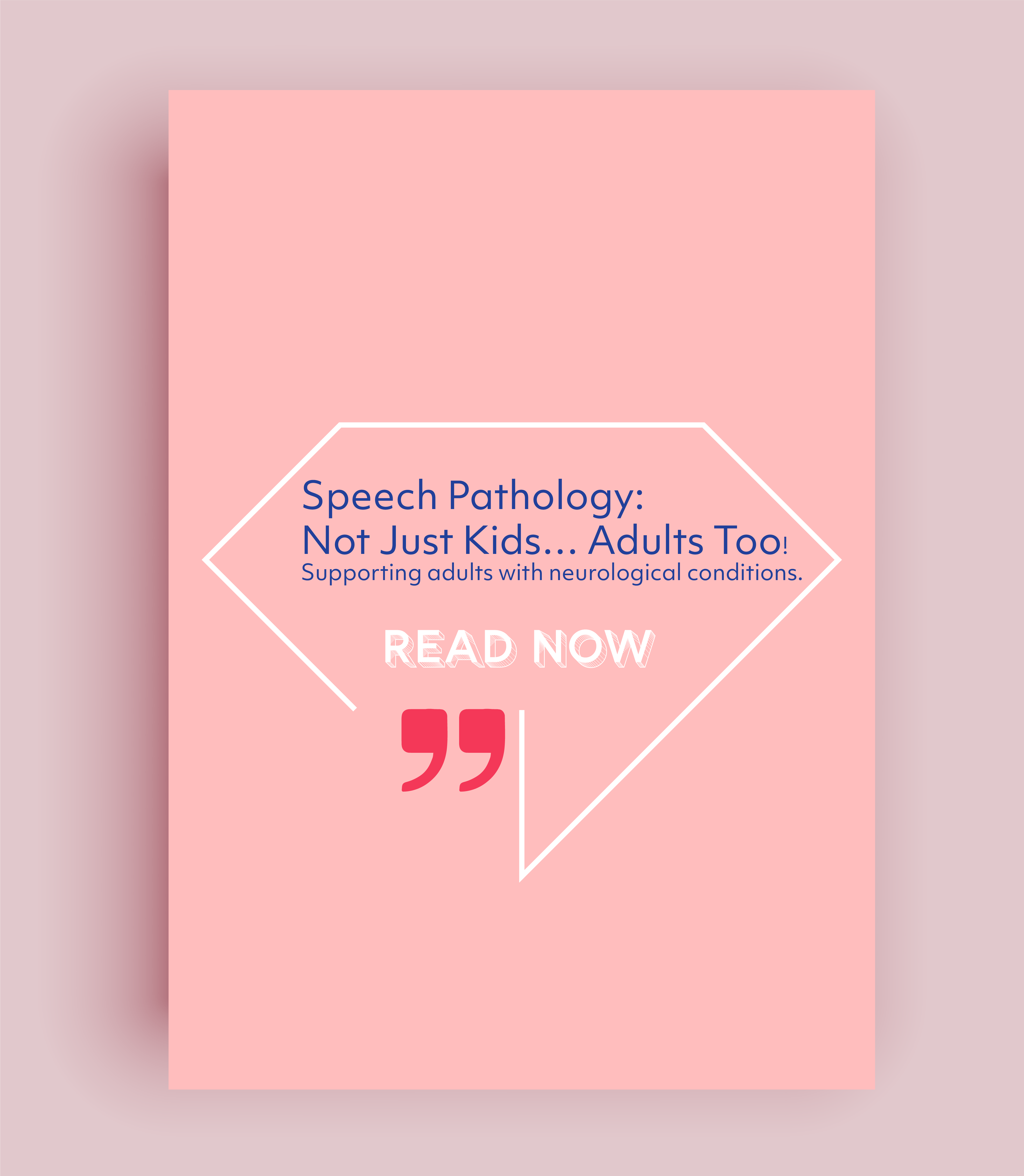National 360 provides speech pathology services to adults living with all neurological conditions, providing support to those who have difficulties with speech, language, literacy, voice, and swallowing. In the same way that physical activities such as walking may be affected by a neurological condition, activities such as talking, understanding, eating, and drinking, may also be affected and can impact a person’s quality of life.
Adult speech pathology services

We provide support to adults experiencing a variety of communication and/or swallowing difficulties due to neurological conditions, these include:
- Stroke
- Brain injury
- Progressive neurological conditions, such as MND, Parkinson’s Disease, Multiple Sclerosis and Dementia
- Cerebral Palsy
- Developmental disabilities
…just to name a few!
Our speech pathologists are skilled in the assessment and diagnosis of such specific neurological conditions for which they can develop comprehensive treatment and management plans based on each person’s unique needs.
The importance of communication

When we think of communicating, we might think about two people having a conversation. However, for a speech pathologist, communication involves much more than just speaking! Communication involves a process of conveying, receiving, comprehending, and responding to information. In this regard, speech pathologists assist with all facets of communication, including speaking, hearing, listening, understanding, reading, writing, use of voice, and the development of social skills.
Did you know speech pathologists are experts in swallowing?
What many people don’t realise about speech pathologists is the role they play in assisting with mealtime safety. Some conditions can sometimes impact your ability to eat and drink safely. Speech pathologists are skilled in diagnosing dysphagia (difficulty swallowing) and can provide advice regarding best practice for safe swallowing, as well as the texture of foods and thickness of fluids. Speech pathologists also assist with mealtime safety through the development of mealtime management plans, and by making recommendations about alternative utensil use or supportive equipment. It’s our goal to make mealtimes comfortable and enjoyable!
What communication difficulties can we help with?
Broadly, communication is the term that addresses speech, language, social communication, and voice. Our speech pathologists can provide support with neurological communication disorders, these may include:
Aphasia is a loss of language that can be caused by stroke, TBI, tumor or progressive neurological conditions, such as dementia. Aphasia can affect any domain of language, including speaking, understanding, reading, and writing. People with aphasia may demonstrate difficulty with verbal expression (word finding and formulating sentences) and understanding both verbal or written language.
Apraxia is a speech disorder that makes it difficult to coordinate and sequence sounds in words. This is caused by a disruption from the brain to the muscles of the mouth.
Dysarthria is a speech disorder that results in slurred speech. This impairment is due to weakness of the muscles of the mouth or possibly those used for breathing.
Dysphonia is a voice disorder that results in changes to voice quality, volume, and production. This can be caused by damage to the brain or problem with a person’s vocal cords or larynx. When someone has dysphonia, the pitch, volume or quality of their voice may change.
Cognitive-communication disorders are problems with communication that have an underlying cause in a cognitive deficit rather than a primary language or speech deficit. Difficulties with attention, memory, organisation, problem-solving and reasoning can cause difficulty performing activities of daily living safely and efficiently as well as communicating effectively.
How can we help?
Our speech pathologists complete the appropriate assessments to identify the most suitable therapy program or compensatory techniques to support communication and/or swallowing difficulties for those living with neurological conditions. We provide education and skills training to caregivers and support staff to ensure they have the knowledge and tools to support their communication and to ensure safe and enjoyable mealtimes at home and in the community.
National 360 also has specialised adult neurology and complex communication clinicians who support our speech pathologists in identifying specific strategies, techniques and/or augmented and alternative communication (AAC) systems to meet their client’s needs, with the aim of helping them reach the communication and/or swallowing goals.
Speech, language, and swallowing are vital components of human connection and fulfillment. What are you waiting for? We provide specialised support in neurological communication and swallowing disorders, and we are here to help you!
How do I access speech pathology?
There are a variety of funding options available at National 360 depending on a person’s individual circumstances. The easiest way to explore your options, and assess your eligibility is to discuss your circumstances with our customer service team.
You can find out more about our speech pathology services by contacting us on 1300 340 440.
Or if you are ready to make a referral click here.



